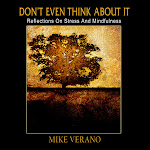 Although, contrary to public opinion, we must not—and indeed cannot—avoid stress, we can meet it efficiently and enjoy it by learning more about its mechanism and adjusting our philosophy of life accordingly.
Although, contrary to public opinion, we must not—and indeed cannot—avoid stress, we can meet it efficiently and enjoy it by learning more about its mechanism and adjusting our philosophy of life accordingly.
A recent quest has taken me into the heart of our country’s strange addiction to stress. You see, I am one of the few remaining souls who still craves decaffeinated cola drinks. For the past several days, I have been in and out of convenience stores, supermarkets and even the cafeteria in the hospital I work in trying to get my hands on a caffeine-free Pepsi or Coke. I would have even settled for an RC. I was that desperate. What I found, instead, was that not only are caffeine-free drinks hard to come by; store shelves are stocked with what I call “canned stress.” These super-charged, stay-up-all-night, “who wants to run around the block” elixirs point to our love/hate relationship with stress.
First, a wee-bit of science. Caffeine has the following effects on our systems:
1. Stimulates your heart, respiratory system, and central nervous system.
2. Causes messages to be passed along your nervous system more quickly.
3. Stimulates blood circulation.
4. Raises blood pressure.
5. Causes your adrenal glands to release their hormones into your bloodstream.
6. Causes blood sugar, or blood glucose, to be released from storage through the effects of the adrenal hormones.
Now here is what stress does to our bodies:
1. Nervous system responds by releasing a flood of stress hormones, including adrenaline and cortisol.
2. Heart pounds faster.
3. Muscles tighten.
4. Blood pressure rises.
5. Breath quickens.
6. Senses become sharper.
The difference between the two responses is how the mind labels what is going on. When the response comes because your boss just reminded you that it is time for your annual review, we call it “stress.” When it comes out of a nicely packed container with the promise of mental clarity and perhaps even sexual prowess, we call it “being juiced.”
Surely, there is a lesson here for us. If the basic difference between the good time of sitting around a table at Starbucks discussing the president’s economic bailout while jacked up on mocha lattes, and the not-so-good time of your stock broker explaining your personal bailout of declaring bankruptcy, is in the mind, there is hope. Perhaps we can take a cue from mass marketing and just repackage our notion of stress to make it more appealing.
I suggest that we stop calling stress the “silent killer” and give it a title worthy of our nation’s obsession with inner energy. We could even hip-hop it up in the same way the Republican Party has brought “street cred” to itself. Something along the lines of “killa stress,” seems fitting.
I would like to kick off a national campaign to turn stress from a villain into a “gangsta,” set to the following rap:
Yo, yo you with the heart beat thumpin’
And the blood all pumpin’
Ain’t you sumpin
With your brains all racin’
And your hormones chasin’
Ain’t nothing you be facin’
But stress
Killa stress…
Oh, well, it didn’t seem to work for the Republicans either. Perhaps we can just learn to accept the fact that the aliveness we feel when stressed is part of the tension of living. Sure, in huge doses, over a prolonged period of time, it can eat away at the fabric of your being, but so can Dr. Pepper. Maybe by simply choosing to rename the moments in our lives when we feel supercharged inside we can defuse the stress time bomb. Of course, that would be nothing more than a mental trick, a slight of mind, as it were. But so is telling ourselves that we are nothing more than ego-filled skins suits that need to fear life rather than celebrate it.
Why not turn the mind back on itself and go deeply into the stress of life, only without the distress? Heck, I’m so convinced I’m going go get a super-sized can of high energy Jolt and drink a toast to stress. Then I’m going to run around the block, take the dog for a walk, and maybe take up kick boxing . . .









